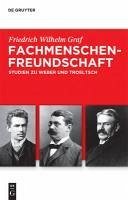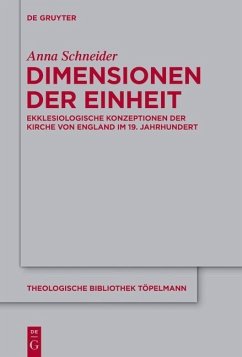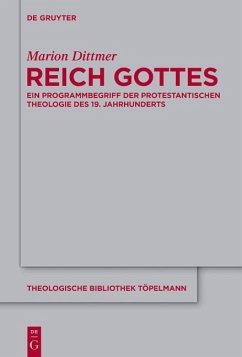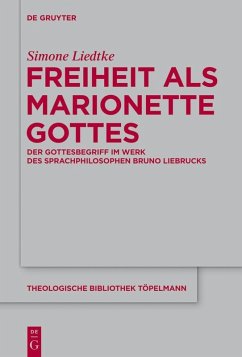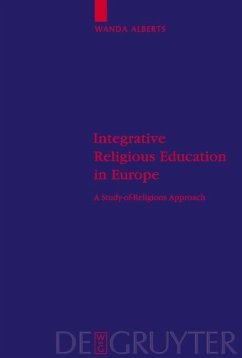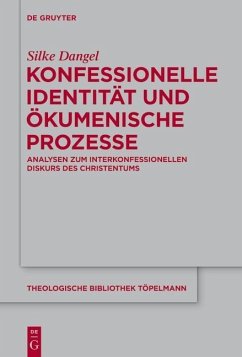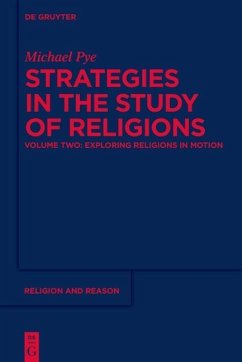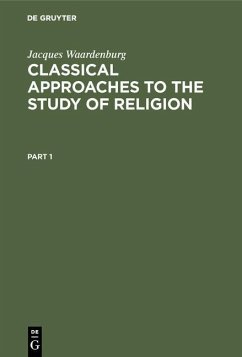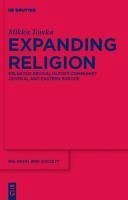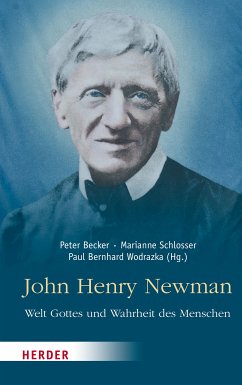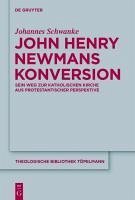
John Henry Newmans Konversion (eBook, PDF)
Sein Weg zur katholischen Kirche aus protestantischer Perspektive
Versandkostenfrei!
Sofort per Download lieferbar
179,95 €
inkl. MwSt.
Weitere Ausgaben:

PAYBACK Punkte
0 °P sammeln!
John Henry Newman (1801-1890), Dozent in Oxford, anglikanischer Priester und römischer Kardinal, ist der bedeutendste und theologisch einflussreichste Konvertit der neuzeitlichen britischen Geschichte. Als Leitstern der katholischen Erneuerung seit dem ersten Weltkrieg wurde er einer der Väter des zweiten Vatikanischen Konzils. Mit der gekonnten Verteidigung seines Übertritts überzeugt er noch heute viele, seinem Weg zu folgen. Papst Benedikt XVI. zählt ihn zu seinen großen Vorbildern.Bedeutend ist, dass Newman Ökumene im gesamtchristlichen Kontext bietet. Seine Konversion ist eine le...
John Henry Newman (1801-1890), Dozent in Oxford, anglikanischer Priester und römischer Kardinal, ist der bedeutendste und theologisch einflussreichste Konvertit der neuzeitlichen britischen Geschichte. Als Leitstern der katholischen Erneuerung seit dem ersten Weltkrieg wurde er einer der Väter des zweiten Vatikanischen Konzils. Mit der gekonnten Verteidigung seines Übertritts überzeugt er noch heute viele, seinem Weg zu folgen. Papst Benedikt XVI. zählt ihn zu seinen großen Vorbildern.
Bedeutend ist, dass Newman Ökumene im gesamtchristlichen Kontext bietet. Seine Konversion ist eine lebenslang vorbereitete Wende: Er war zunächst protestantischer Biblizist, dann evangelikaler Calvinist, liberaler Freidenker, griechisch-orthodoxer Sympathisant, anglikanischer Hochkirchler und schließlich römischer Katholik.
Die vorliegende Studie ist die erste protestantische Monografie zum Thema. Sie bietet eine gründliche Auseinandersetzung mit Newmans Argumenten, blickt auf die biografischen Kontexte seiner Motive, überlegt, ob sich in einer protestantischen Selbstkritik etwas aus ihnen lernen lässt, und fragt, ob Newmans scharfsinnige wie verführerische Apologie wirklich tragfähig ist.
Dieser Download kann aus rechtlichen Gründen nur mit Rechnungsadresse in A, B, BG, CY, CZ, D, DK, EW, E, FIN, F, GR, HR, H, IRL, I, LT, L, LR, M, NL, PL, P, R, S, SLO, SK ausgeliefert werden.




